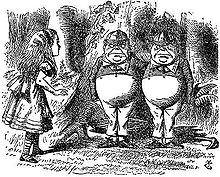The news today is filled with stories about the late congressman from Georgia, John Lewis. Others who knew him and/or who have carefully researched his life should write about this great man. I'll just say he was a man of conscience, who powerfully, and often effectively, addressed some of the greatest wrongs in America, in particular the American South. Congressman Lewis had the scars to demonstrate the sincerity of his convictions.
Though, as I have admitted, I don't know a lot about Congressman Lewis, I do think I can say with confidence that he sought to fight for things that are right. To look at it from the other side, he opposed some things that he saw in his world that were/are wrong. His life was lived in the conviction that was eloquently expressed (though a case can be made not lived) by Thomas Jefferson. "We hold these truths to be self-evident, that all men are created equal, that they are endowed by their Creator with certain unalienable Rights. . . ." There are things that we know are right and wrong. As the Apostle Paul says there is a law written in the heart of even the irreligious (Romans 2:14-15).
One of the books that we read in a class on critical thinking that I teach uses a useful illustration to ask the question as to whether there are really virtues and therefore the necessary vices that come in their absence. The author of the Book, Russ Payne says yes there are ethical realities. (An Introduction to Philosophy, see in particular chapters 9-11). He asks the question, "Is it really wrong to torture puppies?" If one lived among a people that declared that puppy torturing is a great good, would that make it right? Paynes' answer is, Yes, there are ethical realities. Kindness, for example, is a real virtue, and I would say its opposite is a real vice. J. P. Moreland, the author of another book we use in the class, upholds the same concept. Though he is an Evangelical Christian he appeals to natural law.
Two specific aspects of scriptural teaching about extrabiblical knowledge are worthy of special note. First, Scripture repeatedly acknowledges the existence of natural moral law: true moral principles rooted in the way God made things, addressed to humans as humans (instead of to man as a believing member of the kingdom of God) and knowable by all people independently of the Bible (Job 31:13-15; Romans 1–2). Among other things, what this means is that believers need not appeal to Scripture in arguing for certain ethical positions, say, in the abortion debate.
Moreland, J.P.. Love Your God with All Your Mind: The Role
of Reason in the Life of the Soul (932 of 4822). NavPress. Kindle Edition.
In the face of powerful, head-bashing opposition, Lewis said that racial segregation and its associated evils are wrong. An ethical reality is being violated. I oppose this. As a child of the South, I'm glad he did. My culture was, and in ways still is, wrong. Treating people differently because they have more melanin in their skin is not right.
So, where does this leave us?
- Some would say that we just dump Mr. Jefferson's classic lines. The powerful people always seem to find self-evident truths that favor their kind. I think Solomon, the great thinker, saw this as well. "Again I saw all the oppressions that are done under the sun. And behold, the tears of the oppressed, and they had no one to comfort them! On the side of their oppressors there was power, and there was no one to comfort them.” (Ecclesiastes 4:1, ESV)
But if we just lapse into the right for you but not for me relativism--the direction things appear to be moving in my lifetime--don't we lose too much? - Clearly, the "self-evident truths" some have claimed to have observed, have turned out to be falsehoods. The phrenology of the Nineteenth Century is an example. The shape and size of one's head is not an indication of intelligence and proper station in life. From pseudo-science to bad Biblical interpretation my culture has frequently gotten it wrong. Sorting out prejudice and ethical reality is hard work. Yet a skepticism that says, Nobody, really knows what is right and wrong," leads to the postmodern tribalism into which the Western world continues to descend. Unfortunately, I see the West taking other cultures into the same pit.
- I propose that John Lewis was right. We need to oppose what is wrong. We need to stand for what is right. We need to do so humbly, knowing that we often don't get it right the first time, or second, or twentieth. We should follow our Lord's counsel and be more eager to remove logs from our own eyes than splinters from the eyes of others. We can't, however, just take a pass. We are here for a reason.
Bottom line, for those of us who know the Lord, this is part of our salt and light project. If, as I believe, there really are ethical rights and wrongs, then how can we pray, "Thy will be done on earth as it in heaven," unless we try to live out and encourage those ethical realities. If my culture says otherwise, I must be willing to change.




